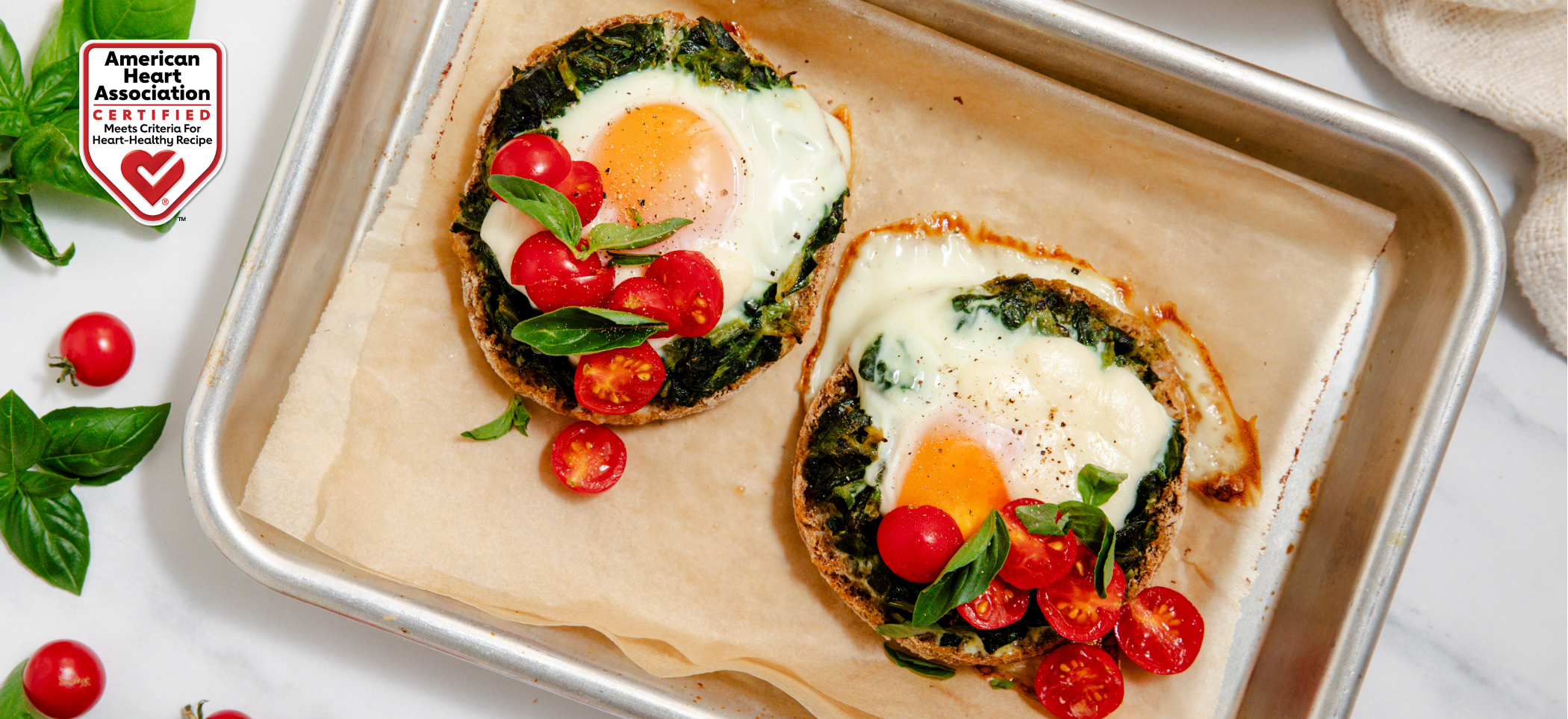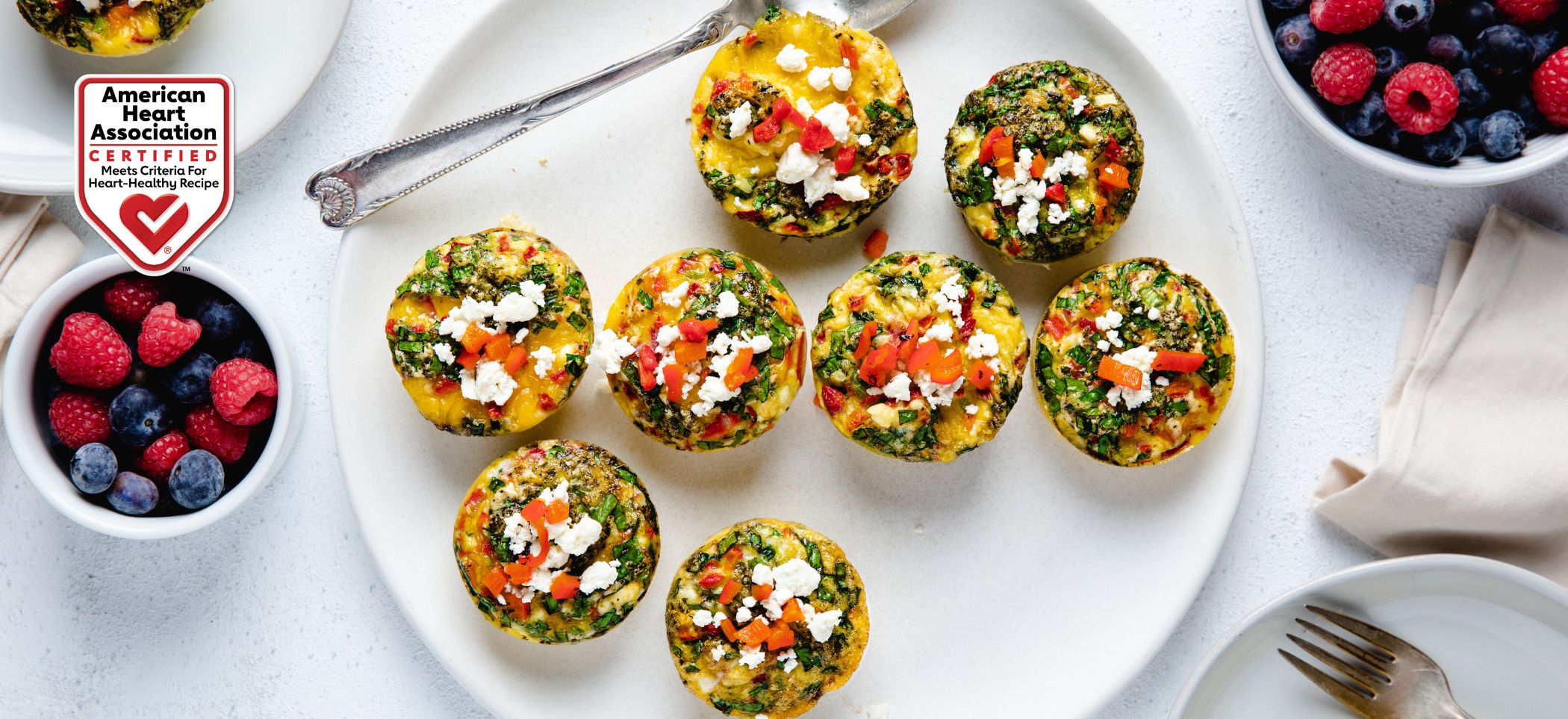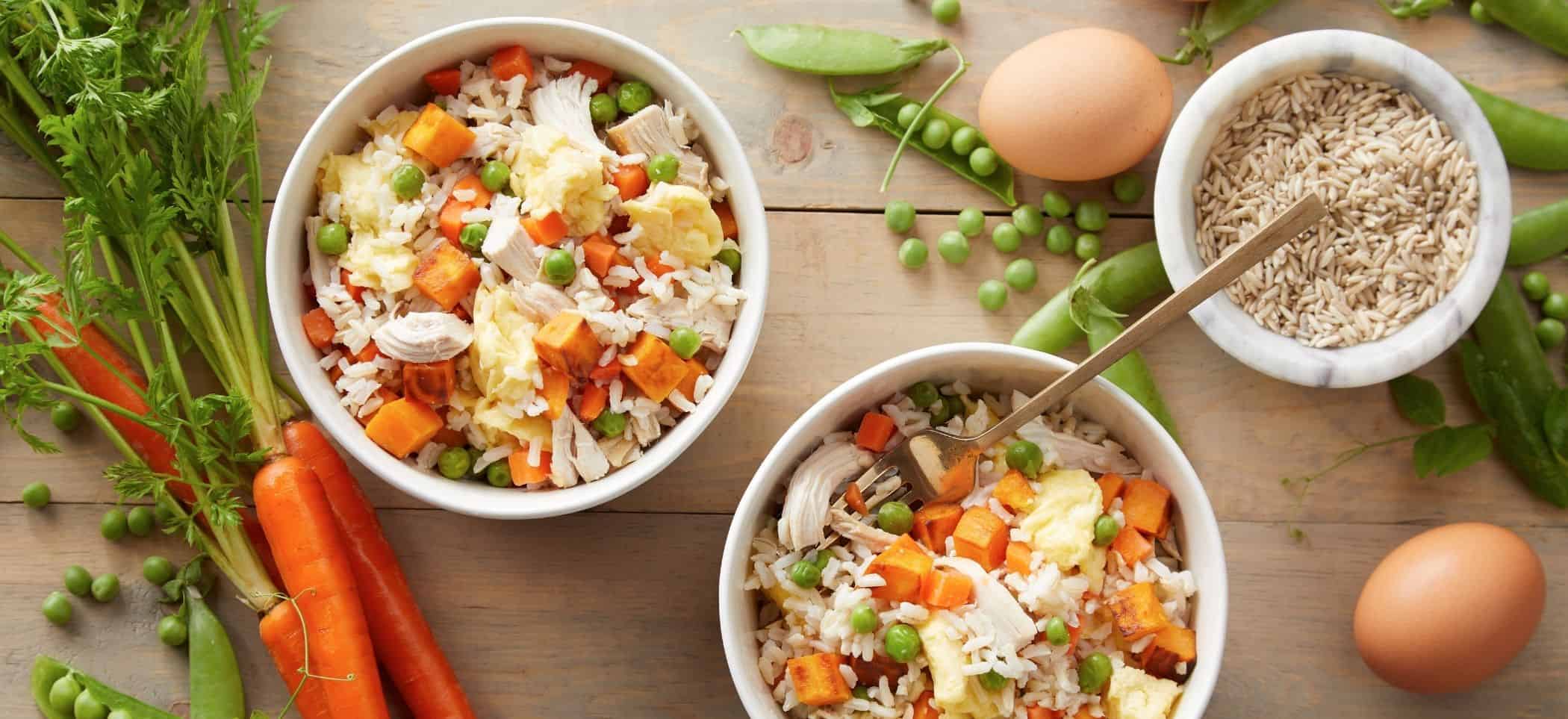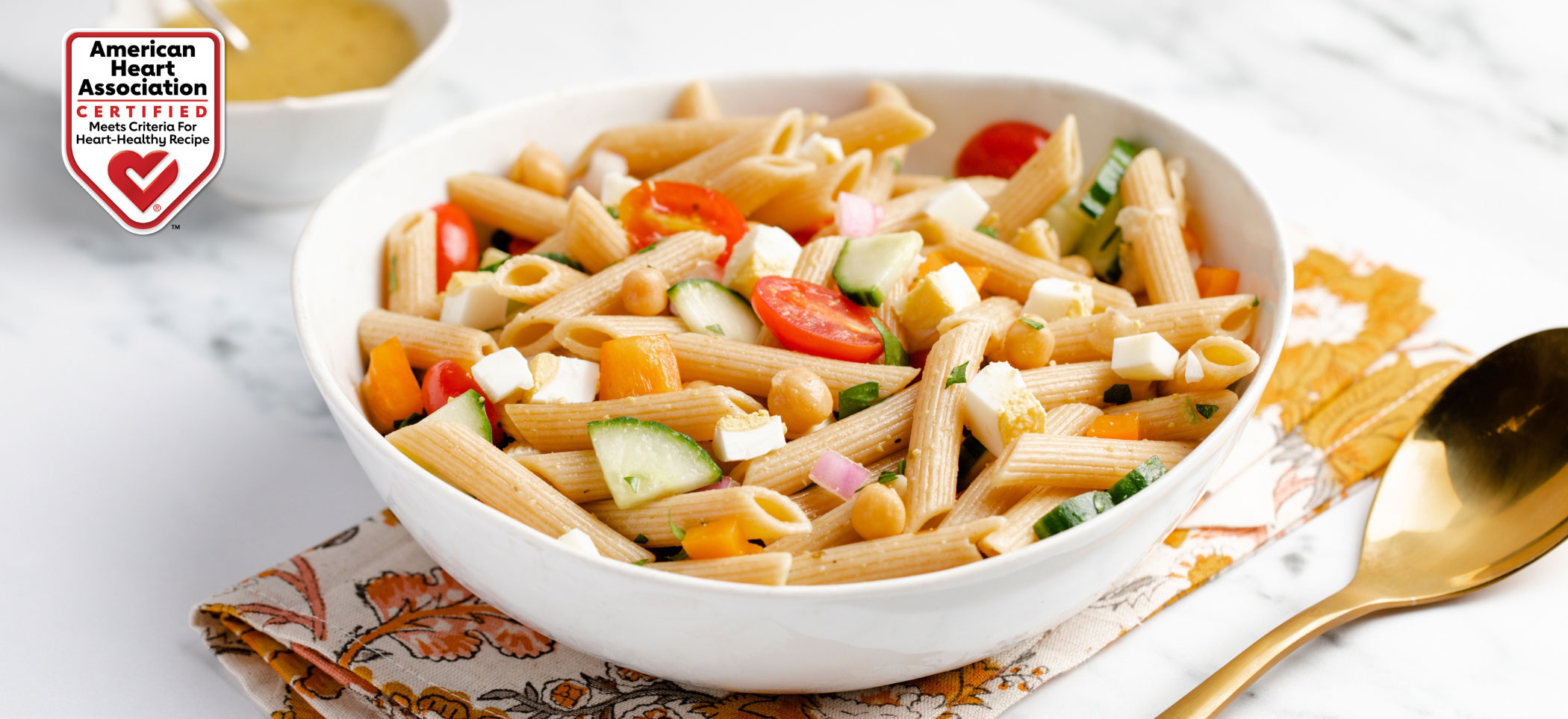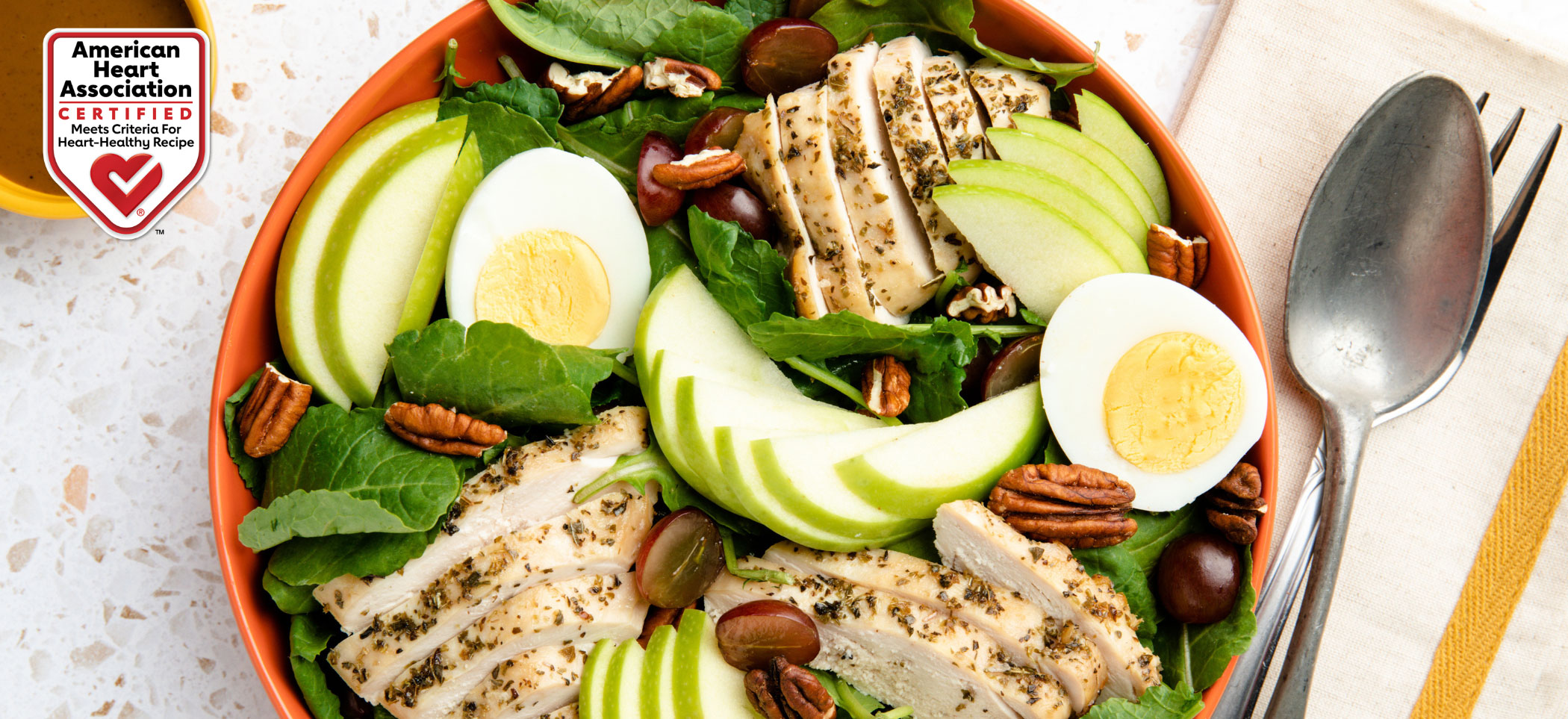Strong Body, Strong Mind: A Strong Case for Eating Eggs
We all want to feel our strongest every day. In a perfect world, we’d have all the time we need to work out, meditate, connect with friends – to be our best selves. But the realities of life often get in the way. The good news is that even taking one step a day in the right direction can make a difference. And we’ve got just the step that’s easy for nearly everyone to take towards their strongest self: simply reach for that carton of eggs.
Eggs Offer Nutritional Support from Head to Toe
Eggs are a source of complete protein, delivering all nine essential amino acids, which is what your body needs to maintain muscle mass.1 It’s the high-quality protein and nutrients in eggs that, along with a balanced diet and regular exercise, help to support all 600+ muscles in your body.2
Eggs are also rich in choline, a nutrient that supports mood and memory.3,4 Though choline is crucial for brain health, 90% of Americans don’t get enough of this nutrient. 5 Eating two eggs — at any time of day — is a strong start, with 12 grams of high-quality protein and 50-70% of your daily choline requirement.3,5
What’s more, eggs contribute lutein and zeaxanthin into the diet – antioxidants that are also found in fruits and vegetables.6 Emerging research indicates there may also be a connection between lutein and cognitive function.7
Eggs Support Four Pillars of Well-Being
Feeling your best means taking care of your whole self – body, mind, emotions, and relationships. These four parts of well-being work together like pillars holding you up. When you strengthen each one, you build a stronger, healthier, and more balanced life.8
Whether it’s boosting physical strength, brain health, emotional balance, or social connections, a few smart choices each day can lead to being Stronger by the Dozen.
Meet the Experts
We’ve partnered with experts across four pillars of well-being to share how eggs can help you get Stronger by the Dozen.
Stronger by the Dozen: Recipes That Fuel Your Whole Self
Eggs are a versatile, real-food solution for every time of day, offering nutritional support from head to toe. Whether you’re aiming to build physical strength, support brain health, find emotional balance, or nurture social connections, these recipes pair eggs with other wholesome ingredients to help you build meals or snacks that are both nourishing and delicious. Get inspired in the kitchen and crack into nutritious recipes that will help you feel Stronger by the Dozen.
References
- Schaafsma G. The protein digestibility-corrected amino acid score. J Nutr. 2000;130(7):1865S-7S.
- Wolfe RR. The underappreciated role of muscle in health and disease. J. Clin. Nutr. 2006;84(3):475-82.
- U.S. Department of Agriculture. FoodData Central SR Legacy — Egg, whole, raw, fresh. 2019 April 1, 2019; Available from: https://fdc.nal.usda.gov/food-details/171287/nutrients.
- National Institutes of Health. Choline: Fact Sheet for Health Professionals. 2021; Available from: https://ods.od.nih.gov/factsheets/Choline-HealthProfessional/.
- Wallace TC, et al. Choline: The underconsumed and underappreciated essential nutrient. Today. 2018;53(6):240-253.
- American Egg Board’s Egg Nutrition Center. What We Eat in America. NHANES 2015-2018. 2022; Available from: Nutrient-Contribution-of-Eggs-to-the-American-Diet_21-November-2022.pdf.
- Johnson EJ. Role of lutein and zeaxanthin in visual and cognitive function throughout the lifespan. Rev. 2014;72(9):605-12.
- National Institute of Mental Health. Caring for your mental health. U.S. Department of Health and Human Services. December 2024. Available from: https://www.nimh.nih.gov/health/topics/caring-for-your-mental-health







